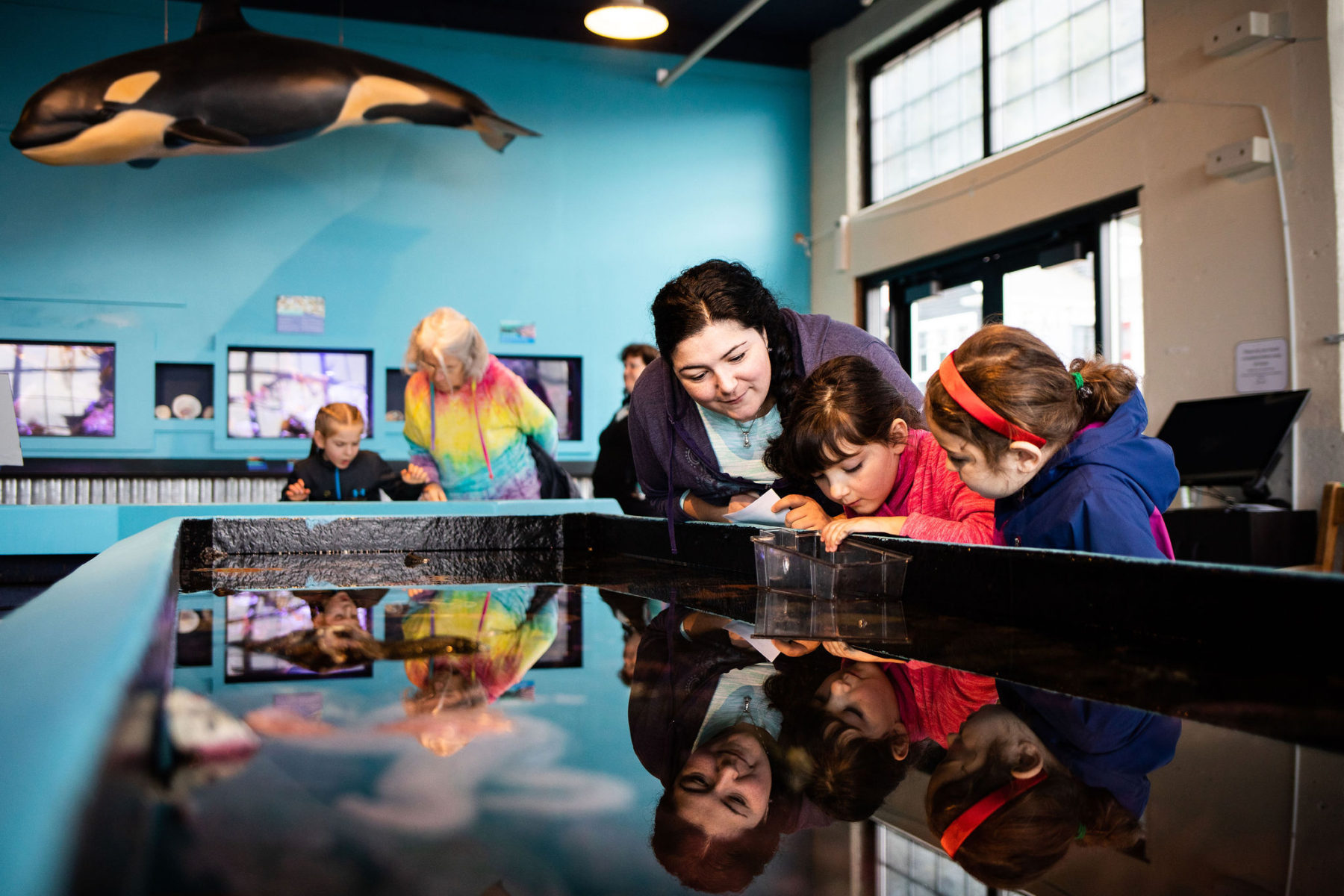
Science Bites, News, Education
Science Bites, News, Education
Science Bites, News, Education
The Science of Justice
As society grapples with the global discussion of social justice, educators at Sitka Sound Science Center have taken a moment to look at our own practices in our education programs. The Science Center’s mission is to increase understanding and awareness of ecosystems of Alaska through education and research. So, what does that have to do with social justice?
The very work we do here at the Science Center is not separate from social justice at all. Instead, as blogger for Pachamama Alliance, Haley Hansel writes, “The interconnectedness of daily human life and the state of the Earth often goes unexamined, but at this point in human history we cannot afford to separate these conversations.” (https://blog.pachamama.org/how-social-justice-and-environmental-justice-are-intrinsically-interconnected)
Professor David Pellow at the University of California, Santa Barbara directs the Global Environmental Justice Project. Dr. Pellow identifies the lack of diverse voices as an obstacle to addressing issues such as climate change. He and other scientists insist that we cannot “separate the ecological from the social” (https://www.sustainability.ucsb.edu/ecological-justice-is-social-justice-too).
But still, how do these very compelling ideas relate to our education practices? Dr. Pellow has an insight about that too. He states, “When you look at what people are doing in their communities whether it’s gardening or organizing, the things people do on an everyday basis that may not be so visible, we should imagine them as part of this massive movement because they are mobilizing ideas, thinking, people, and action.”
We believe that our everyday educational activities are important in mobilizing ideas and promoting new thinking. These are some of our practices that contribute to the ideas of justice in science education:
- Creating free-choice explorations that allow children to develop their own voices.
- Offering STEAM activities free of stereotypical expectations of interests or aptitudes.
- Teaching respect for our environment through awareness activities like our “Tina the Tourist” beach ethics lessons or our Guided Beach Walks.
- Building understanding of the ecological systems of our place through Scientists in the Schools and Eco-Discovery programs.
- Offering extended opportunities for high school students to learn vocational and research skills through our Aquaculture, Mentored Research, Work Experience, and Summer Interpreter programs so that doors open to authentic work that benefits community.
- Listening respectfully.
- Willingness to learn.
What can families do to enrich their own activities that contribute to the massive movement of ecological and social justice? We have some suggestions:
- Take nature walks dedicated to the age level of your children. There are the absolute sweetest suggestions available on-line for toddlers and for older children. Exploring our backyards (from the smallest literal backyard or frontyard to our Tongass forest “backyard” and our Sitka Sound “front yard”) creates wonder and appreciation for diversity.
- Use the language of our Baranof Elementary teachers. Instead of “Ooh, that’s yucky”, teachers model saying, “Oh, how interesting!” which changes the dialogue from a value laden statement of distaste or fear of something that is different to interest and curiosity. Discovering how all living things and non-living things are essential in the ecosystem is part of justice.
- Take advantage of the many educational programs offered by the Science Center, STA, 4H and Sitka Conservation Society, Sitka Fine Arts Camp, Sitka Public Library, and many more organizations just here in Sitka. The diversity of offerings contributes to a broader world view.
- Explore books and curriculums related to the topic of environmental and social justice. One example is the “Learning to Give” initiative based in Michigan. The educational activities and ideas are worth investigating: https://www.learningtogive.org/resources/environmental-justice-toolkit
Thank you,
SSSC Education Team
